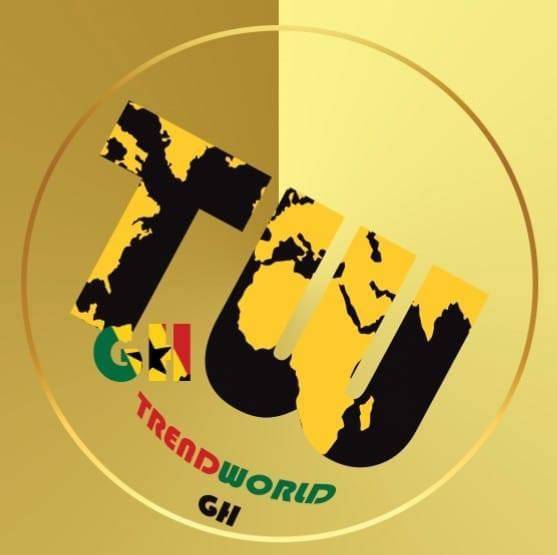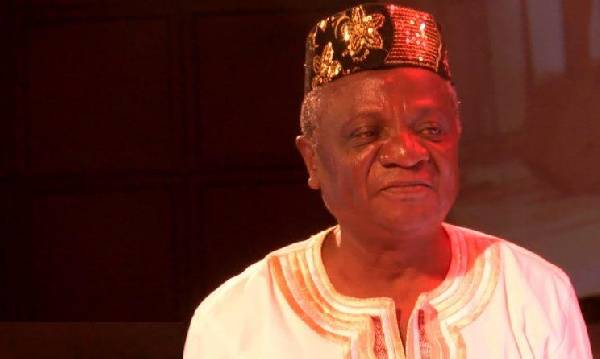Nana Kwame Ampadu: A Pioneer of Ghanaian Highlife Music
Nana Kwame Ampadu, one of the most celebrated musicians in Ghana, left an indelible mark on Highlife music, a genre deeply rooted in Ghanaian culture. Born on March 31, 1945, in Obo Kwahu in the Eastern Region of Ghana, Ampadu’s illustrious career spanned decades, earning him the nickname “King of Highlife.†His remarkable storytelling, prolific songwriting, and influence on Ghana’s music industry have immortalized him as a cultural icon.
Early Life and Musical Beginnings
Nana Ampadu’s passion for music was evident from a young age. Growing up in a family that valued tradition and storytelling, he was inspired by the folk songs and oral narratives of his community. These influences shaped his distinctive style, blending Highlife rhythms with vivid storytelling.
Ampadu received his early education in his hometown, where he began honing his craft by performing at local events. Despite financial challenges, his determination to pursue music never wavered. In the early 1960s, he moved to Accra, the cultural hub of Ghana, in search of opportunities to establish himself as a musician.
The African Brothers Band
Nana Ampadu’s career took off in 1963 when he formed the African Brothers Band with a group of like-minded musicians. The band quickly gained popularity for its innovative approach to Highlife music, combining traditional Ghanaian rhythms with contemporary themes. Their ability to connect with audiences through relatable stories and catchy melodies set them apart in the competitive music scene of the time.
The African Brothers Band produced several hit songs that resonated with the public. Their debut single, Ebi Te Yie (translated as “Some Are Well-Seatedâ€), became an instant success, addressing themes of inequality and social justice. Ampadu’s knack for using music as a platform for social commentary earned him widespread acclaim.
A Master Storyteller
One of Nana Ampadu’s most defining qualities was his exceptional storytelling ability. He used his songs to narrate compelling stories, often drawn from Ghanaian folklore, societal issues, and moral lessons. Songs like Obra (“Lifeâ€) and Agatha captivated listeners with their rich narratives and thought-provoking messages.
In Obra, Ampadu emphasized the transient nature of life, encouraging listeners to lead meaningful lives and make wise decisions. Similarly, Agatha told the tragic tale of a young woman, warning against the consequences of poor choices. These songs not only entertained but also educated, reflecting Ampadu’s deep connection to Ghanaian cultural values.
Prolific Career
Nana Ampadu’s career was marked by extraordinary productivity. Over the decades, he reportedly composed more than 800 songs, making him one of the most prolific songwriters in African music history. His vast repertoire spanned various themes, including love, politics, religion, and morality.
Some of his other notable songs include Oman Bo Adwo (which discusses patriotism and national unity), Yaa Amponsah (a classic Highlife tune), and Susu Biribi (a reflective piece about life’s mysteries). His versatility and ability to adapt to changing musical trends ensured that his music remained relevant across generations.
International Recognition
Nana Ampadu’s impact extended beyond Ghana’s borders. His music resonated with audiences across West Africa and even reached diasporic communities in Europe and the Americas. He toured extensively, performing on international stages and promoting Highlife music as a vital part of African cultural heritage.
His influence on African music was profound, inspiring younger generations of musicians to embrace Highlife while experimenting with new sounds. Artists such as Daddy Lumba, Kojo Antwi, and even Afrobeat pioneers like Fela Kuti drew inspiration from Ampadu’s groundbreaking work.
Challenges and Resilience
Despite his immense success, Nana Ampadu’s career was not without challenges. The music industry in Ghana during the 1970s and 1980s faced economic difficulties, and artists often struggled with piracy and inadequate royalties. However, Ampadu’s resilience and dedication to his craft ensured that he continued to thrive in an evolving industry.
In the later years of his career, Ampadu embraced new technologies and platforms to reach younger audiences. His timeless music found a home in modern media, and he remained an active performer and mentor to aspiring musicians.
Legacy and Passing
Nana Ampadu passed away on September 28, 2021, at the age of 76. His death marked the end of an era in Ghanaian music, but his legacy lives on through his timeless songs and the countless lives he touched. Tributes poured in from across the world, with fans, musicians, and leaders celebrating his contributions to African music and culture.
Ampadu’s influence on Highlife music cannot be overstated. He transformed the genre into a powerful medium for storytelling and social change, ensuring its continued relevance in a rapidly changing world. His dedication to preserving and promoting Ghanaian culture has made him a national treasure, and his music remains a source of pride and inspiration for future generations.
Conclusion
Nana Kwame Ampadu was more than just a musician; he was a storyteller, cultural ambassador, and pioneer whose work transcended entertainment to shape the social and cultural fabric of Ghana. His mastery of Highlife music, combined with his unwavering commitment to preserving Ghanaian traditions, cemented his place as one of Africa’s greatest musical legends.
In the annals of African music history, Nana Ampadu’s name will forever shine as a beacon of creativity, resilience, and cultural pride. His life and music remind us of the power of art to connect, educate, and inspire.




No comments yet
Be the first to share your thoughts!